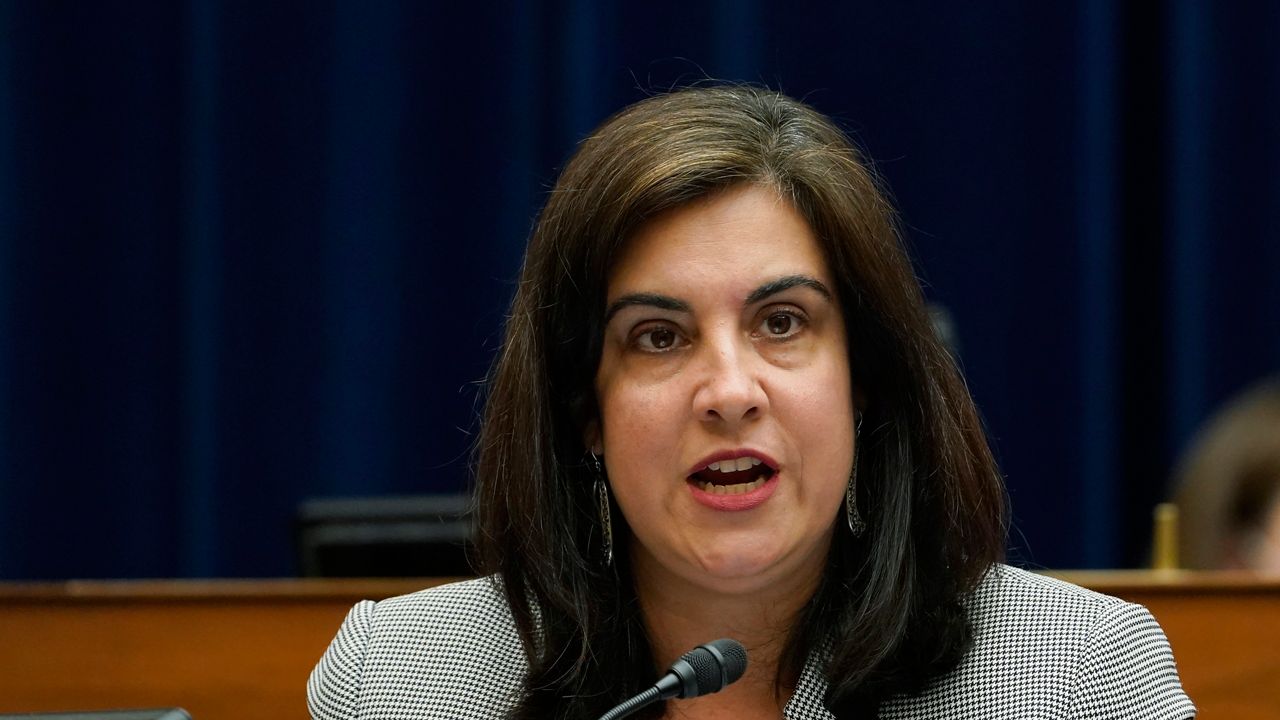WASHINGTON — A cohort of House Republicans representing districts in Democratic-led states are fuming over the state and local tax deduction cap included in the Senate’s version of what President Donald Trump calls his “one big, beautiful” bill, adding another layer to the uncertainty around its future.
In a post on X on Monday, one of those Republicans, Rep. Nicole Malliotakis of New York, blasted the level set by Senate Republicans, pointing out that the cap included in the House version of the bill was “carefully negotiated.”
“For the Senate to leave the SALT deduction capped at $10,000 is not only insulting but a slap in the face to the Republican districts that delivered our majority and trifecta,” Malliotakis wrote.
Fellow New York Republicans, Reps. Mike Lawler and Nick LaLota – two of the most outspoken on the SALT issue – made clear that they would not support the bill if it includes the Senate’s 1$0,000 cap. Lawler called the proposal “DEAD ON ARRIVAL.”
“Instead of undermining the deal already in place and putting the entire bill at risk, the Senate should work with us to keep our promise of historic tax relief and deliver on our Republican agenda,” co-chairs of the SALT Caucus, Reps. Young Kim, R-Calif., and Andrew Garbarino, R-N.Y. wrote in a statement.
Republicans on the Senate Finance Committee on Monday unveiled the text for its portion of the legislation bearing Trump’s priorities on tax cuts, defense, the border and energy. The proposal shed light on the most consequential changes Republicans in the upper chamber are looking to make to the version of the bill that passed the House last month. The changes included further alterations to Medicaid and lowering the SALT cap to $10,000.
Republicans in the lower chamber hailing from blue states like New York, New Jersey and California, where their constituents pay high state taxes, spent weeks negotiating an increase in the cap to $40,000 from the current $10,000 level. The group pledged to reject the bill when it returned to the House if the Senate lowered it.
House Speaker Mike Johnson, R-La., said earlier this month that he was “pleading” with Senate leaders not to alter the cap, pointing to the “delicate” balance he has to maintain among the GOP in his chamber. After the Senate makes its changes to the legislation, it has to pass the House again before it can reach Trump’s desk, which Republicans hope can happen by July 4.
In an interview with Fox News that aired on Sunday, Senate Majority Leader John Thune, R-S.D., said he believed Republicans in both chambers and the White House would be able to reach a “landing spot” or “compromise position” on the SALT cap, indicating talks over the level were still taking place.
But he has repeatedly stressed that the issue does not hold the same weight in the upper chamber, where there are no Republicans representing traditionally high-tax blue states.
“We also understand that we're going to have to probably do something there, but we also start from a position that there really isn't a single Republican senator who cares much about the SALT issue,” Thune told reporters outside the West Wing following a meeting with the president earlier this month.
New York Republican Rep. Elise Stefanik on Monday expressed confidence in getting the Senate up to a higher figure, writing on X “Everyone knows this 10K number will have to go up. And it will.”
If all Democrats vote against the legislation when it returns to the House, Johnson can only afford to lose a few GOP votes, meaning the support of Republicans who have staked their backing on the SALT issue could be key.
Two Republicans in the chamber voted against the House’s version of the bill in May while one other voted present. Since then, one other House Republican, Rep. Marjorie Taylor Greene of Georgia has indicated she may flip to vote against legislation when it comes back over a measure she didn’t realize was included.


